ASHRAE offers a multitude of resources on IAQ, IEQ and environmental health. Learn more about featured products, or
browse the ASHRAE Bookstore for the latest guidance.
Free Download - IAQ Guide
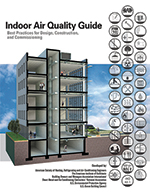
The Indoor Air Quality Guide: Best Practices for Design, Construction and Commissioning is designed for architects, design engineers, contractors, commissioning agents, and all other professionals concerned with indoor air quality.
Developed in cooperation with the American Institute of Architects, U.S. Green Building Council (USGBC), the Building Owners and Managers Association International (BOMA), the Sheet Metal and Air Conditioning Contractors' National Association (SMACNA), and the U.S. Environmental Protection Agency (EPA). The guide is now available as a free download.
Learn more
ASHRAE IAQ 2013: Environmental Health in Low Energy Buildings
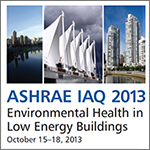
ASHRAE IAQ 2013 reviews the state of knowledge on the balance between environmental health and energy efficiency in the pursuit of low-energy buildings. The conference covers a broad range of topics including residential and commercial buildings, new construction and retrofit, active and passive approaches, design, and operation.
Purchase the conference collection
Training
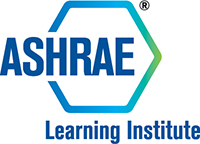
The ASHRAE Learning Institute (ALI) offers regularly scheduled professional development seminars and short courses related to indoor air quality. These seminars/courses provide high-quality, authoritative and credible technical information and all content is developed through ALI’s peer-review process.
Short courses, including Avoiding IAQ Problems and IAQ Best Practices for Design, Construction and Commissioning are available now.
Complete list of the courses offered regularly by ALI
Complete list of courses that are open for registration.
Clean, Lean and Green IAQ for Sustainable Buildings - an ASHRAE Satellite Broadcast DVD
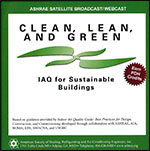
This broadcast/webcast from the studio of WETA Public Television in Arlington, VA, challenges the building community to use enhanced IAQ practices to create a more sustainable built environment. The panel shares the combined knowledge and experience of over 100 industry professionals. The information presented here is intended for a cross section of professionals, including design engineers, architects, contractors, building owners, developers, and facility managers.
Available now
Standard 62.1 - Ventilation for Acceptable Indoor Air Quality
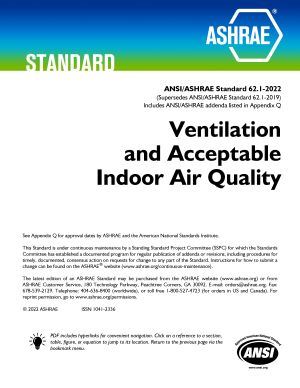
First published in 1973 as Standard 62, Standard 62.1 specifies minimum ventilation rates and othermeasures for new and existing buildings that are intended to provide indoor airquality that is acceptable to human occupants and that minimizes adverse health effects.
Discover More about Standard 62.1
Standard 55 - Thermal Environmental Conditions for Human Occupancy
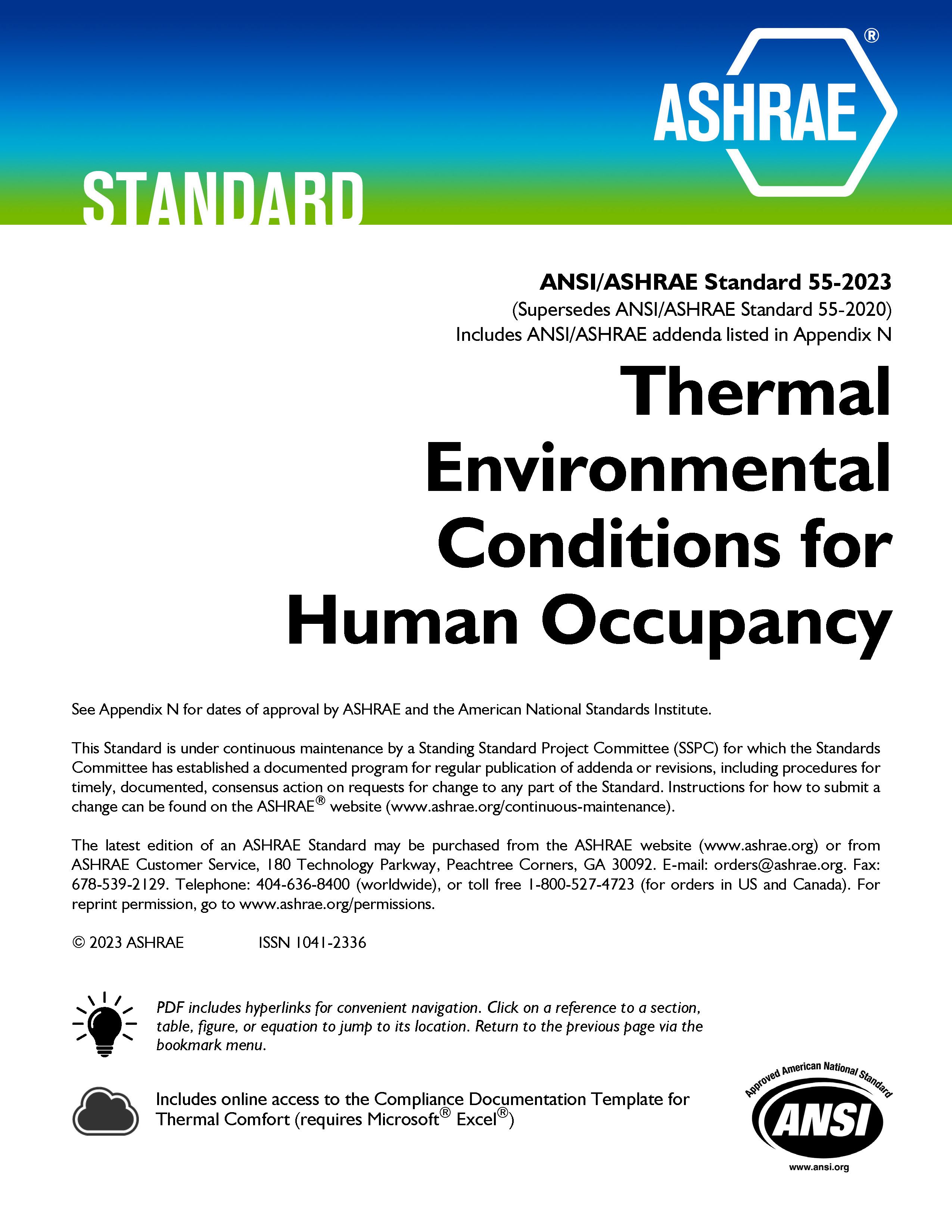
Standard 55 specifies conditions for acceptable thermal environments and is intended for use in design, operation, and commissioning of buildings and other occupied spaces. The 2017 edition of ANSI/ASHRAE Standard 55 incorporates seven published addenda to the 2013 edition, and provides three compliance methods: a graphic method for simple situations, an analytical method for more general cases and a method that uses elevated air speed to provide comfort. The standard has a separate method for determining acceptable thermal conditions in occupant-controlled naturally conditioned spaces. Given the widespread and easy accessibility of computing power and third-party implementations of the analytical method, it is expected that more users will favor the comprehensive analytical methods over the graphical method.
Discover More about Standard 55